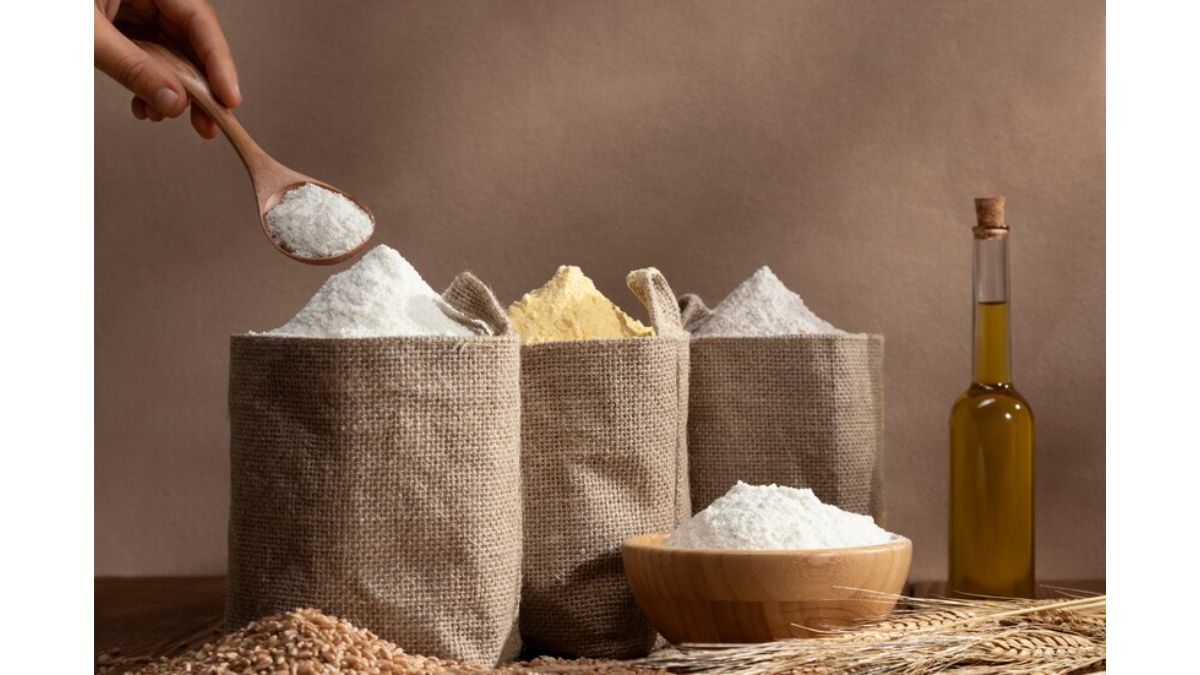- By Prerna Targhotra
- Mon, 29 Apr 2024 10:15 AM (IST)
- Source:JND
Healthy Atta Alternatives: By switching flour we mean that an individual shouldn’t be only consuming wheat flour every single day. One day it can be wheat, the other day it can be Barley, the third maize & so on. Switching to a different type of flour can greatly improve digestion and keep your gut healthy. The next question would be why? When we keep changing grains, along with fibre & vitamin B12, there are many nutrients which differ for each grain. Also, there is a variety of gut microbes & it enhances the growth of good bacteria in the gut when the grains are being changed on a regular basis.
Shlloka Joshii, Classical Hatha Yoga teacher and Yogic Nutritionist explained how atta affects our digestion and healthy alternatives of flour for enhancing digestion and other bodily functions.
How Atta Affects Our Digestion?
When there is diversity, the body is able to absorb better. The flour most people use is made from wheat, which originally was heavy, oily, and had a sweet and cooling nature. However, due to demand and profit, wheat has been heavily modified for easier farming and greater yields. This new variety of wheat is difficult to digest and often feels heavy and sticky in the stomach, similar to chewing gum.
The gluten component in this modified wheat is hard to digest, leading to intolerance. This hybridization has resulted in wheat that is no longer nourishing or strengthening, and it contains high levels of gluten, which can be problematic for many, including those who are not gluten-sensitive due to the refining process.
ALSO READ: 5 Worst Foods For Blood Pressure: Avoid Eating These Foods To Prevent Hypertension
Healthy Atta Alternatives
According to NIMHANS and ICMR, 10% of Indians are presently suffering from gluten insensitivity. Choosing whole wheat or multigrain flour is a better option, as it contains more nutrients and dietary fibre. However, it's essential to consider your digestive health when making choices. Safe multigrain options - whole wheat 50%, barley, brown rice, maze & flax seeds, gram flour (rest all combined 50%). It can be a combination of all these grains or any 2 of these too.

Healthy Atta Alternatives (Image Credits: Freepik)
Additionally, flour made from millet such as Ragi, jowar, and Bajra is a healthier alternative. Millets contain more fibre than wheat, are nutrient-dense, and are gluten-free, making them easier to digest. They also keep you full for longer and are more satisfying. Millets cannot be easily modified and are staples in many parts of the country. They can be used in various forms, including as whole grains or flour for making roti or dosa.
When making flour from millets, it's important not to mix them with wheat or rice flour, as millets have a low glycemic index and are gluten-free. One interesting way to consume millet is by making fermented gruels, such as Ambli in Karnataka or Koozh in Tamil Nadu. This fermentation process improves nutrient absorption and digestion, making millets suitable for all ages. In Karnataka the dish is called Ambli, in Tamil Nadu a dish called Koozh, Rajasthan has Raab and Odisha has Pej.
ALSO READ: Try These Natural Ways To Improve Your Digestion In Summers | Gut Health
Recipe: All these are made using the flour of a millet, soaked overnight in 2 parts of water then 2 more cups of water are added in the morning, and cooked to form the gruel. It is allowed to cool down and then buttermilk is added and kept for fermentation for half a day before consumption. This method improves the bioavailability of the nutrients, makes the millet easy to digest and is suitable for all ages. Ragi, jowar, barnyard millet, and barley are particularly well-suited for consumption in summer due to their cooling properties.

